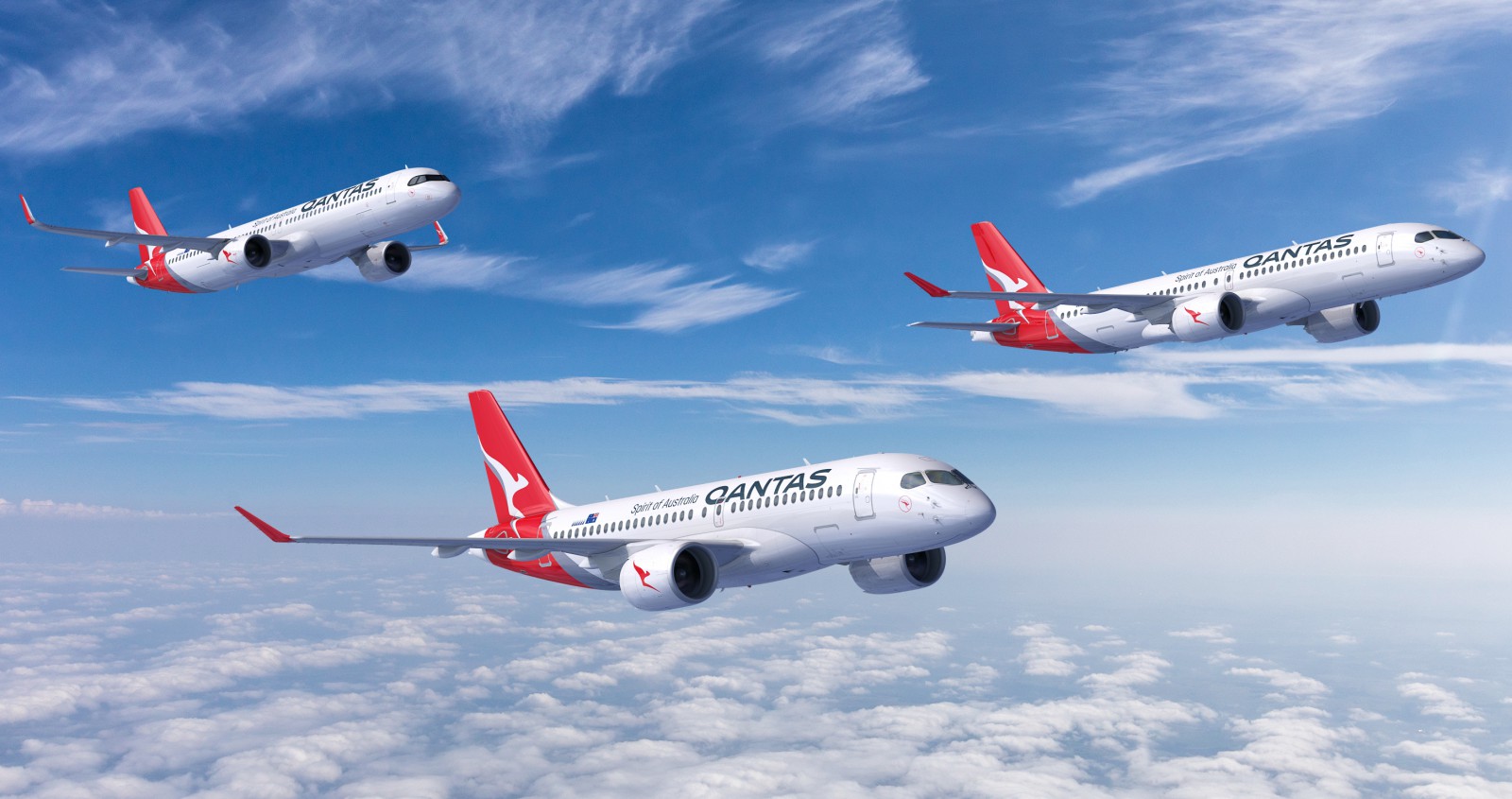Qantas expects to report a dramatic reversal of fortune with an Underlying Profit Before Tax of between $1.2 billion and $1.3 billion for the first half of FY23.
The blue sky forecast follows five consecutive halves of red ink due to the pandemic and cumulative statutory losses of $7 billion.
The bullish forecast has prompted the airline to pour money into staff salaries and bonuses plus customer enhancements as well as a one million seat sale.
Qantas said it expected net debt to fall to between $3.2 billion and 3.4 billion at 31 December 2022, which is below the bottom of the target range of $3.9 billion.
The airline said that domestic travel demand remains strong across all categories. Revenue intakes for business purposes are over 100 per cent of pre-COVID levels and leisure intakes have further strengthened to over 130 per cent.
See wheel falling off 747 Dreamlifter
Qantas said that yields from international markets are particularly strong but are expected to moderate as it and other carriers steadily increase capacity.
The airline will change its wages policy covering around 20,000 employees and after a two-year freeze that reflects the bulk of the time the airline was in hibernation, annual wage increases will be adjusted upwards from 2 per cent to 3 per cent.
This wage increase is in addition to the $5,000 recovery boost announced in June and the 1,000 share rights awarded to non-executive staff as part of a retention program, worth a further $5,000 on the current share price.
The Group said it will continue to invest in extra resourcing to provide a buffer against the challenges that impacted reliability earlier in the year, including unexpected sick leave spikes and supply chain delays for aircraft parts.
It has allocated a further $200 million for the remainder of FY23 related to rostering additional crew, training of new recruits and overtime in key areas such as contact centres.
Group International capacity is now expected to increase from 61 per cent of pre-COVID levels in the first half of FY23 to 77 per cent in the second half.
This is largely determined by the ability to return additional A380s from storage and required maintenance, as well as the delivery of three new Boeing 787-9 Dreamliners for Qantas International and additional Airbus A321LRs for Jetstar.
Group Domestic capacity will be 94 per cent of pre-COVID levels for 1H23, growing to around 100 per cent for the second half – which is six percentage points below previous capacity guidance. This reduction is designed to protect the sustained improvement in operational performance as the broader industry recovers.
Qantas said that operational performance has continued to improve towards pre-COVID levels, despite some extreme weather events on the east coast, air traffic control limitations and a busy school holiday period nationally.
It said that Qantas Domestic’s on-time performance increased from 67 per cent in August to 69 per cent in September, finishing ahead of its main competitor.
Qantas’ cancellations fell from 4 per cent in August to 2.4 per cent in September. In October so far, only 1.7 per cent of flights have been cancelled, which is market-leading and better than pre-COVID levels. Mishandled bags remained low at 6 per 1000 passengers in September and into October.
Qantas Group chief executive Alan Joyce said: “It’s been a really challenging time for the national carrier but today’s announcement shows how far we’ve come.
“Since August, we’ve seen a big improvement in our operational performance and an acceleration in our financial performance.
“It’s clear that maintaining our pre-COVID service levels requires a lot more operational buffer than it used to, especially when you consider the sick leave spikes and supply chain delays that the whole industry is dealing with. That means having more crew and more aircraft on standby and adjusting our flying schedule to help make that possible until we’re confident that extra support is no longer needed.
“Qantas’ operations are largely back to the standards people expect, and Jetstar’s performance has improved significantly in the past few weeks and will keep getting better with the extra investments we’re making.
“The fact our financial recovery has accelerated means we can invest more in rewarding our employees, who are doing an amazing job. We’ll spend an additional $40 million a year on permanent pay increases for our people on top of the $200 million in cash and share bonuses we’ve announced for our people.”
























